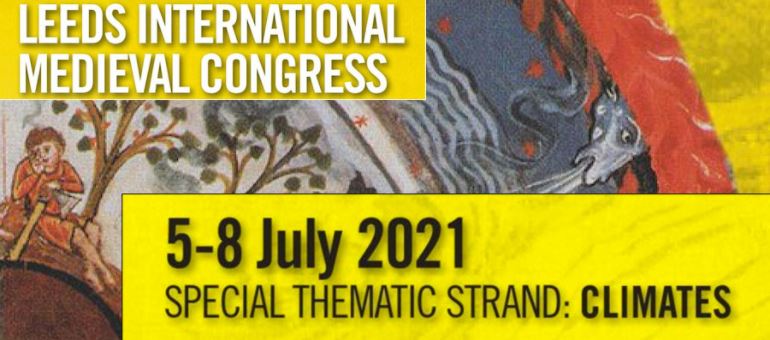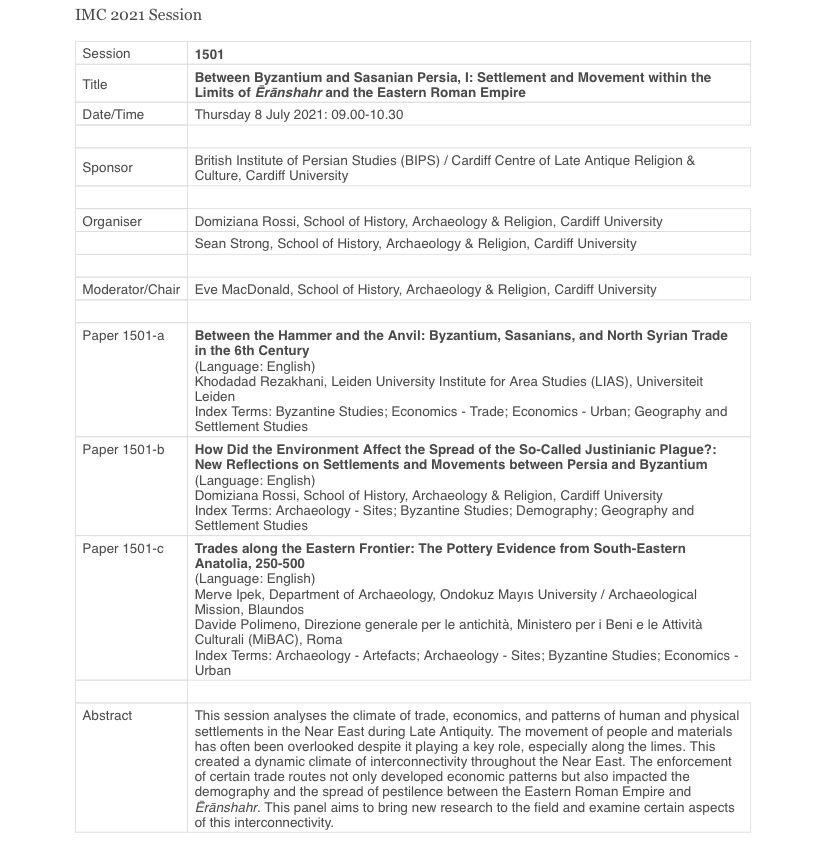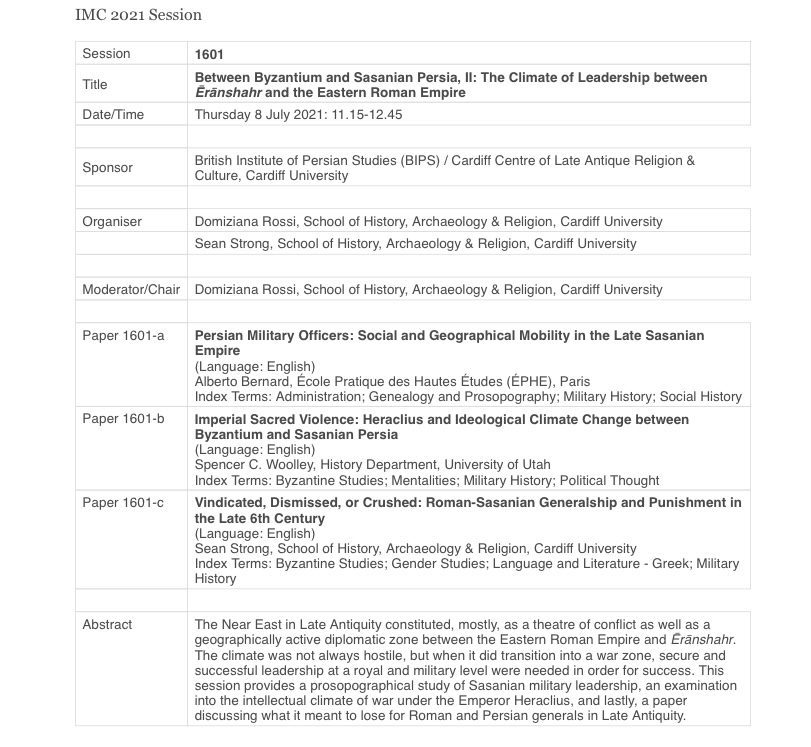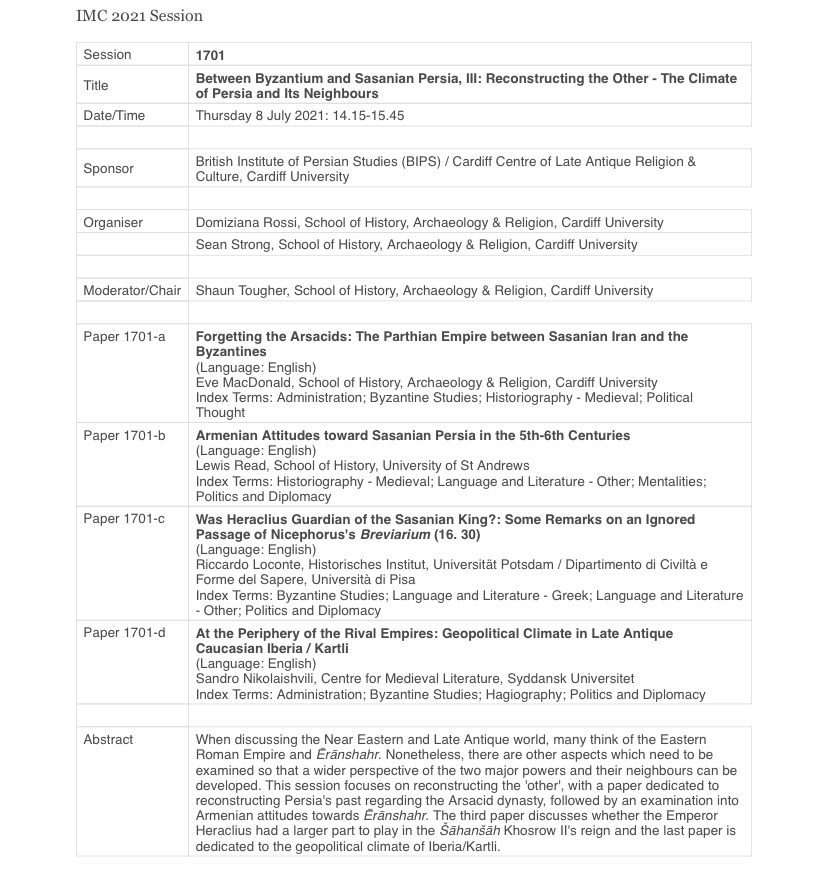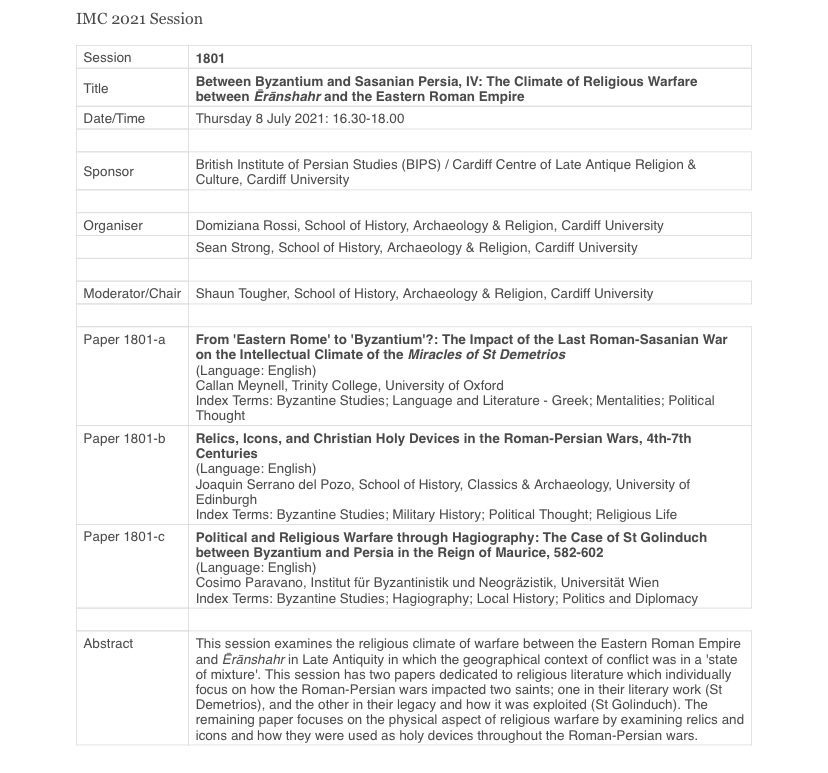October 2020 | BIPS Travel Grant
Congress Report: International Medieval Congress (IMC), Leeds, 5th – 9th July 2021
Panel Strand – ‘Byzantium and Sasanian Persia: The Climate of the Near East in Late Antiquity.’
British Institute of Persian Studies Grant Report
Domiziana Rossi and Sean Strong
Between the 5th and 9th of July 2021, the International Medieval Congress, hosted by Leeds University, took place and saw medievalists from all over the globe come together to discuss all things Late Antique and Medieval. The event normally sees thousands of attendees come to the Leeds campus, however, because of the current world situation, the event took place online. The theme for this iteration of the IMC was ‘Climates.’
Domiziana and I co-organised four panels under the umbrella strand of ‘Between Byzantium and Sasanian Persia: The Climate of the Near East in Late Antiquity.’ This saw twelve papers delivered with topics spanning geographical regions, incorporating different sub-disciplines, and encompassing new methodologies to help progress our understanding of the Late Antique Near East. The panels were split into thematic sessions each focussing on a different aspect of Byzantine and Sasanian relations – (i) Settlement and Movement (ii) Leadership (iii) Persia and her neighbours (iv) Religious Warfare. Significantly, these papers highlighted how vast and interconnected the Roman and Sasanian world were during Late Antiquity, but also how important they were in Mediterranean and Global contexts. Discussion took place not only on how they interacted with one-another, but also those who were actively involved in the geographical region, such as Armenia and Kartli. Broadly speaking, topics ranged between historiographical issues, diplomacy, economics, ideologies, military matters, the power of religion in conflict and vice versa, as well as the remembrance, or perhaps want of forgetting, those in the past.
The strand was well attended with over thirty live attendees attending each panel and numerous more taking up the opportunity to watch the recordings of the sessions. Several individuals provided positive acclaim towards the sessions after they were concluded, and it was noted by many attendees how these panels were able to bring greater prominence to the two superpowers of Late Antiquity at this event.
Quickly, we would like to highlight the principal reason why Domiziana and I decided to put together these panels. Within the last few years, Byzantine Studies has steadily been increasing its presence at the IMC and more generally at events and conferences around the world. Yet, it remains one of the smaller academic fields compared to those focussed on the geographical context of the western Mediterranean. More so, Iranian Studies, and in specific Sasanian Studies, has largely been left out of many important debates. Although it should be noted that some notable scholars have started to bridge these gaps within the last decade. Sasanian Studies is respectively smaller than other academic fields, yet this does not mean it is any less important. We decided, that, it was time to bring Sasanian history to the world stage and what better place than the IMC. After listening to all the papers and the consequent discussions, with those within and outside of the discipline, it is clear that we were able to achieve our goal. The proceedings of the panels are currently in the process of being published in an edited volume.
We would once again like to thank the British Institute of Persian Studies for financially supporting all speakers for this event. The financial support of BIPS truly made the event successful as everyone was able to attend and share their interesting research with the wider academic community.
